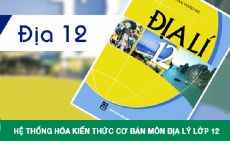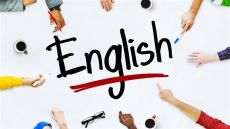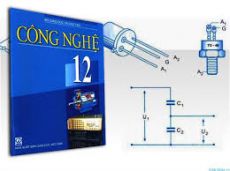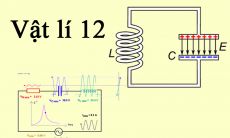Đề thi thử THPT QG năm 2021 môn Tiếng Anh
Trường THPT Thăng Long Lần 2
-
Câu 1:
Indicate the word whose underlined part differs from the other three in pronunciation: complained, roared, existed, decayed
A. complained
B. roared
C. existed
D. decayed
-
Câu 2:
Indicate the word whose underlined part differs from the other three in pronunciation: creature, creamy, creative, crease
A. creature
B. creamy
C. creative
D. crease
-
Câu 3:
Indicate the word that differs from the other three in the position of primary stress: struggle, answer, confide, comfort
A. struggle
B. answer
C. confide
D. comfort
-
Câu 4:
Indicate the word that differs from the other three in the position of primary stress: inflation, maximum, applicant, character
A. inflation
B. maximum
C. applicant
D. character
-
Mark the letter A, B, C, or D on your answer sheet to indicate the correct answer to each of the following questions.
Câu 5:
Tom invited us to come to his party,.......................?
A. couldn't he
B. wasn't he
C. hadn't he
D. didn't he
-
Câu 6:
The injured ———————- to the hospital in an ambulance.
A. were taking
B. was taking
C. were taken
D. have taken
-
Câu 7:
Sometimes she does not agree.............her husband about child rearing but they soon find the solutions.
A. with
B. for
C. on
D. of
-
Câu 8:
The greater the demand,................the price.
A. the highest
B. the high
C. higher
D. the higher
-
Câu 9:
Indiana University, one of the largest in the nation, is located in a.............town.
A. small beautiful Midwestern
B. beautiful Midwestern small
C. Midwestern beautiful small
D. beautiful small Midwestern
-
Câu 10:
I broke my teeth when I.................dinner.
A. had
B. was having
C. am having
D. am having
-
Câu 11:
_______ I’d like to help you out, I’m afraid I just haven’t got any spare money at the moment.
A. Although
B. However
C. Despite
D. In spite of
-
Câu 12:
John will look for a job __________.
A. after he had passed his exams
B. as soon as he passes his exams
C. while he was passing his exams
D. before he passed his exams
-
Câu 13:
________ a scholarship, I entered one of the most privileged universities of the United Kingdom.
A. To award
B. Being awarded
C. Having awarded
D. Having been awarded
-
Câu 14:
Euthanasia, also a mercy killing, is the practice of ending a life so as to release an individual from an incurable disease or _________ suffering.
A. tolerated
B. tolerant
C. tolerate
D. intolerable
-
Câu 15:
There are other problems of city life which I don't propose to ____ at the moment.
A. go into
B. go around
C. go for
D. go up
-
Câu 16:
The government should take some measures to.................that tourism develops in harmony with the environment.
A. promote
B. ensure
C. facilitate
D. improve
-
Câu 17:
With a good _________ of both Vietnamese and English, Miss Loan was assigned the task of oral interpretation for the visiting American delegation.
A. insight
B. knowledge
C. command
D. proficiency
-
Câu 18:
Jimmy always takes the ________ by the horns at every chance in order to become a famous pop star, which is why he is so successful now.
A. bull
B. horse
C. cow
D. buffalo
-
Câu 19:
Tourism is changing rapidly as nature, heritage, and recreational destinations become more important, and as conventional tourism is forced to _______ tougher environmental requirements.
A. meet
B. impose
C. lay
D. set
-
Mark the letter A, B, C or D to indicate the word(s) CLOSEST in meaning to the underlined word(s) in each of the following questions.
Câu 20:
The protesters were angry with the council’s plan to do away with a lovely old building and put a car park there instead.
A. destroy
B. replace
C. remain
D. keep
-
Câu 21:
There are many TV commercials which distracting viewers from watching their favorite films.
A. economics
B. businesses
C. contests
D. advertisements
-
Mark the letter A, B, C or D to indicate the word(s) OPPOSITE in meaning to the underlined word(s) in each of the following questions.
Câu 22:
Many people perished in the Kobe earthquake because they were not prepared for it.
A. survived
B. departed
C. lost their lives
D. declined
-
Câu 23:
The writer was really hot under the collar when his novel was mistaken for another.
A. angry
B. worried
C. calm
D. curious
-
Mark the letter A, B, C, or D on your answer sheet to indicate the sentence that best completes each of the following exchanges
Câu 24:
Mai and Lan are friends.Lan asks Mai about Mai's plan. Select the most suitable response to fill in the blank.
Lan: “Are you going to see the live show by Son Tung today?”
Mai: “__________”.
A. Yes, I enjoyed it very much
B. Maybe I'll be out.
C. Yes, I'm going to stay in.
D. I think so.
-
Câu 25:
Mary invited her friend, Sarah, to have dinner out that night and Sarah accepted. Choose the most suitable response to fill in the blank in the following exchange.
Mary: “Shall we eat out tonight?” - Sarah: “___________.”
A. It's kind of you to invite
B. You are very welcome
C. That's a great idea
D. That's acceptable
-
Read the following passage and mark the letter A, B, C, or D on your answer sheet to indicate the correct word or phrase that best fits each of the numbered blanks from 25 to 29.
In such a costly and competitive society and world, no one of us can live without money. We need money to fulfill our basic needs of the life such as buying food, and (26) ________ many basic necessities of life which are almost impossible to buy without money. People in the society (27)______are rich and have property are looked as honourable and respectful person of the society however a poor person is seen as hatred without any good impression.
Money increases the position of the person in the society and (28)______a good impression to him. All of us want to be rich by earning more money through good job or business in order to fulfil all the increasing demands of the modern age. (29)______, only few people get this chance of completing their dreams of being a millionaire.
So, money is the thing of great importance all through the life. Money is required by everyone whether he/she is rich or poor and living in urban areas or rural areas. People in the urban areas are earning more money than the people living in backward or rural areas as the people of the urban areas have more (30)______to the technologies and get more opportunity because of the easy sources.
Câu 26:
(26).....................
A. other
B. some
C. many
D. few
-
Câu 27:
(27)...................
A. where
B. what
C. who
D. which
-
Câu 28:
(28)..................
A. gives
B. does
C. takes
D. draws
-
Câu 29:
(29)...................
A. Besides
B. Therefore
C. Moreover
D. However
-
Câu 30:
(30)..................
A. way
B. exit
C. access
D. order
-
Read the following passage and mark the letter A, B, C, or D on your answer sheet to indicate the correct answer to each of the questions from 31 to 35.
In 2007, at a heavily hyped press event in San Francisco, Apple co-founder Steve Jobs stood on stage and unveiled a revolutionary product that not only broke the mould but also set an entirely new paradigm for computer-based phones. The look, interface and core functionality of nearly every smartphone to come along since is, in some form or another, derived from the original iPhone’s innovative touchscreen-centric design.
Among some of the ground-breaking features was an expansive and responsive display from which to check email, stream video, play audio, and browse the internet with a mobile browser that loaded full websites, much like what is experienced on personal computers. Apple’s unique iOS operating system allowed for a wide range of intuitive gesture-based commands and eventually, a rapidly growing warehouse of downloadable third-party applications.
Most importantly, the iPhone reoriented people’s relationship with smartphones. Up to then, they were generally geared toward businesspeople and enthusiasts who saw them as an invaluable tool for staying organized, corresponding over email, and boosting their productivity. Apple’s version took it to a whole other level as a full-blown multimedia powerhouse, enabling users to play games, watch movies, chat, share content, and stay connected to all the possibilities that we are all still constantly rediscovering.
Câu 31:
Which best serves as the title for the passage?
A. Apple co-founder Steve Jobs
B. Press event in San Francisco
C. Apple’s unique iOS operating system
D. Apple’s iPhone
-
Câu 32:
The word “paradigm” in paragraph 1 is closest in meaning to ______.
A. media
B. pattern
C. role
D. area
-
Câu 33:
Which is NOT mentioned in paragraph 1 as a characteristic of the new iPhone?
A. new look
B. interface
C. excellent sound
D. core functionality
-
Câu 34:
The word “that” in paragraph 1 refers to ______.
A. mobile browser
B. internet
C. email
D. audio
-
Câu 35:
The iPhone reoriented people’s relationship with smartphones and geared toward ______.
A. businesspeople
B. organizers
C. producers
D. gamers
-
Read the following passage and mark the letter A, B, C, or D on your answer sheet to indicate the correct answer to each of the questions from 36 to 42.
Today, Snyder is seeing the fruits of the collaboration. In a recent issue of the Journal of Comparative Psychology (Vol. 117, No. 3), the research group published the first study of giant panda cub-rearing and separation. The study is the first step in examining the impact of a common breeding practice in China: separating captive cubs before they are six months old so that the mothers will be able to reproduce again sooner. Cubs in the wild stay with their mothers for 1.5 to 2.5 years.
Snyder and her co-authors, including Maple and psychologist Mollie Bloomsmith, PhD, theorize that separating cubs from their mothers too early may harm their social development, and could underlie why so many captive pandas fail to breed. Captive males often show little sexual interest in females or are too aggressive.
The research team has also conducted urinary and behavioral analyses of female giant pandas during the breeding season, which is generally in the spring, and is examining the behavior of giant panda mothers. Graduate student Megan Wilson, who also has worked in Chengdu, is investigating sequences of play-fighting for her dissertation. And former graduate student and Chengdu researcher Loraine Tarou, PhD, examined giant panda cognition.
Tarou, now an assistant professor at Grand Valley State University in Michigan, is the first to examine how captive pandas forage for food and learn to adapt to changes in their environment. She compared her findings with the cognition of the spectacled bear and found that while both use spatial memory to find food, the spectacled bears used visual cues the pandas did not pick up on.
The finding indicates that giant pandas' reliance on spatial memory alone may cause them to have difficulty when their food sources are abruptly changed or moved--a big problem for an animal that consumes nearly 30 pounds of bamboo a day.
While such basic research may not have immediate application, says Tarou, it is contributing to scientists' growing knowledge of the species.
Câu 36:
Which of the following best serves as the title for the article?
A. Learning about pandas
B. Understanding breeding practice of pandas
C. Snyder and her co-authors’ theory
D. How captive pandas forage for food
-
Câu 37:
Naturally, panda cubs stay with their mothers for ______.
A. 1 to 1.5 years
B. 1.5 to 2.5 years
C. 2.5 to 3 years
D. 3 to 4 years
-
Câu 38:
The word “underlie” in paragraph 2 most probably means ______.
A. obtain
B. generate
C. explain
D. develop
-
Câu 39:
What analyses has been done on female giant pandas during the breeding season?
A. spatial memory analyses
B. environment interaction analyses
C. food analyses
D. urinary and behavioral analyses
-
Câu 40:
The word “conducted” in paragraph 3 is closest in meaning to ______.
A. look for
B. carry out
C. get on
D. set off
-
Câu 41:
Which of the following is infered according to the article?
A. Captive panda cubs in China are often separated from mothers before they are six months.
B. Separating cubs from their mothers early may be beneficial to their social development.
C. Megan Wilson and Loraine Tarou examined panda breeding season.
D. A panda consumes nearly 300 pounds of bamboo a day.
-
Câu 42:
The word “them” in paragraph 5 refers to ______.
A. difficulties
B. memories
C. food sources
D. giant pandas
-
Mark the letter A, B, C, or D on your answer sheet to indicate the underlined part that needs correction in each of the following questions.
Câu 43:
Many students took part in the entrance examination at university highly every year.
A. students
B. took
C. entrance
D. highly
-
Câu 44:
Many successful film directors are former actors who desire to expand his experience in the film industry.
A. successful film directors
B. former
C. who
D. expand his
-
Câu 45:
I don’t think it would be political to ask for loan just now.
A. don’t think
B. political
C. ask
D. for
-
Mark the letter A, B, C, or D on your answer sheet to indicate the sentence that is closest in meaning to each of the following questions
Câu 46:
It has been a long time since they met.
A. They haven’t met since a long time.
B. They haven’t met for a long time.
C. They didn’t meet for a long time.
D. They didn’t meet a long time ago.
-
Câu 47:
“I will pay back the money, Gloria.” Said Ivan.
A. Ivan apologized to Gloria for borrowing her money.
B. Ivan offered to pay Gloria the money back.
C. Ivan promised to pay back Gloria’s money.
D. Ivan suggested paying back the money to Gloria.
-
Câu 48:
My children are possibly in the living room.
A. My children will be playing in the living room.
B. My children cannot be in the kitchen.
C. I do not know whether my children are in the living room.
D. My children might be in the living room.
-
Mark the letter A, B, C, or D on your answer sheet to indicate the sentence that best combines each pair of sentences in the following questions
Câu 49:
I regret not booking the seats in advance.
A. I wish I book the seats in advance.
B. If only I booked the seats in advance.
C. I wish I have booked the seats in advance.
D. If only I had booked the seats in advance.
-
Câu 50:
We arrived at the cinema. Then we realized our tickets were still at home.
A. No sooner had we realized that our tickets were still at home than we arrived at the cinema.
B. Not until we arrived at the cinema that we realized that our tickets were still at home.
C. Only after we arrived at the cinema did we realize that our tickets were at home.
D. Hardly had we arrived at the cinema than we realized that our tickets were still at home.














